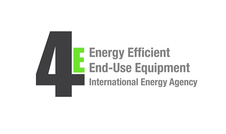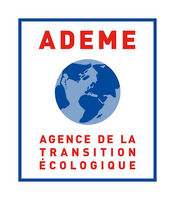Search eceee proceedings
HeatForAll: a framework for a just transition in household heating services
Panel: 2. Efficiency and beyond: innovative energy demand policies
Authors:
Matthew Leach, University of Surrey, United Kingdom
Floris Bierkens, University of Surrey, United Kingdom
Ishanki De Mel, University of Surrey, United Kingdom
Lirong Liu, University of Surrey, United Kingdom
Michael Short, University of Surrey, United Kingdom
Mona Chitnis, University of Surrey, United Kingdom
Xinyou Liu, University of Surrey, United Kingdom
Abstract
Decarbonisation of building heating is a significant challenge for the UK’s 2050 Net-Zero targets: less than 5% of UK households use renewable heating sources, and much of the building stock is relatively old and inefficient. Efficiency retrofits, fuel switches and heating system replacements can be expensive and as many as 13% of households in the UK were already classed as fuel poor in 2019: the 2021/22 energy crisis deepens this problem. The paper comes from a project funded by the UK Government-supported “Network for Heating and Cooling Research to Enable a Net-Zero Carbon Future”.
The project is developing a framework to explore combinations of end-use efficiency improvements, low-carbon heat supply investments and policy measures that meet decarbonisation targets whilst minimising fuel poverty, as part of a Just Transition and “HeatForAll”.
The project has three modelling layers: bottom-up engineering models of the building stock and occupant demographics; techno-economic optimisation of fabric efficiency and heating system choices; economic models of household expenditure and macro-economic impacts on the wider economy. These are combined with scenario analysis of technology options and policy choices into a single framework, for decision support on local strategies and to inform wider policy development.
The presentation outlines the framework and presents a case study application to 2000 Council-owned properties in the borough of Woking in the county of Surrey in the SE of the UK. Surrey has a target for 61% GHG emissions reduction by 2035. The framework is applied to explore the outcomes of meeting this target for the properties studied, with the current UK policy regime (Business as Usual), or with addition of a new policy measure (“Proposed” scenario). The energy prices used in the modelling reflect pre-crisis tariffs and forecasts.
Under BAU, existing government incentives leave significant financial burdens on households. Most notably, installation of hot water storage tanks vital to air-source heat pumps are not funded, and financial support for heatpumps is limited to the most inefficient properties, excluding many already in fuel poverty (ie EPC Band D). The Proposed scenario introduces an additional grant, funding insulation measures, ASHPs and electric boilers and applicable to all fuel-poor dwellings.
Preliminary results show that economically optimal choices under BAU lead to emissions reduction of 37% from baseline. Only the least efficient (EPC band E) dwellings install a heat pump. For other dwellings, funding is allocated towards retrofitting insulation measures; relatively high electricity prices lead to gas boilers being the optimal heating system choice. In the Proposed scenario, all fuel poor households install heat pumps and additional window double glazing. This results in an emissions decrease of 67%, achieving Surrey’s 61% target. Additional iterations test the effect of forcing the model to achieve Woking Borough Council’s own target of Net Zero by 2030.
By targeting limitations of existing policy, the additional grant under the Proposed scenario is successful at promoting decarbonised heating under fuel poverty. However, significant government investment is required. To explore this, macroeconomic effects are simulated in the third layer of the framework. The investments required are treated as external shocks to the current equilibrium in the socio-economic system. Using input-output simulation, changes in GDP, industrial output, government income, indirect GHG emissions of other sectors, and total GHG emissions are assessed. Comparison of the results of different scenarios will provide important information for both local strategy development and for national policy design, supporting development of practical technological and policy solutions to tackle fuel poverty through the transition
Downloads
Download this presentation as pdf: 2-183-22_Leach_pres.pdf
Panels of
1. Dynamics of consumption: less is more?
2. Efficiency and beyond: innovative energy demand policies
3. Policy, finance and governance
4. Monitoring and evaluation for a wise, just and inclusive transition
5. Towards sustainable and resilient communities
6. Energy-efficient and low-carbon mobility for all
7. Policies and programmes for better buildings
8. Innovations in products, systems and building technologies



























